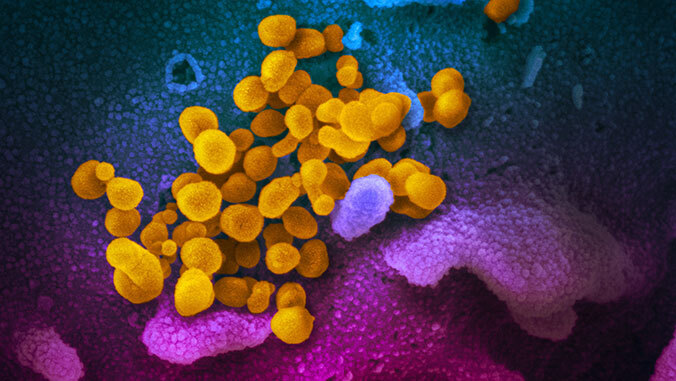
AI innovation may improve COVID-19 diagnosis

A new artificial intelligence (AI) innovation can test individuals for COVID-19 with greater accuracy and safety, and a University of Hawaiʻi at Mānoa team is working with medical professionals to put it into action.
Studies performed in China show only about 50 to 80 percent of those with COVID-19 will be identified by the widely-used RT–PCR test (swab test), while a chest computational tomography (CT) scan provides the most accurate diagnosis. However, since CT scans come with the risk of radiation exposure, using reduced doses is recommended. The problem is reduced doses, particularly less than 30 percent of the usual dose, cause strong streak artifacts on CT images, obscuring the detection of lung abnormalities such as COVID-19 and cancer.
UH Mānoa electrical engineering Assistant Professor Il Yong Chun and his team developed new AI systems that can resolve this issue by reconstructing high-quality images at lower dosages, providing a more accurate diagnosis with greater safety.
Published research
Chun’s innovation, the state-of-the-art iterative neural network, called Momentum-Net, was recently published in IEEE Transactions on Pattern Analysis and Machine Intelligence, the most prestigious journal in AI and computer vision. Momentum-Net can rapidly solve a wide range of problems in imaging, image processing and computer vision. It can reconstruct previously unseen images with high quality even when trained from limited samples.
Innovation implementation
Chun is working with medical physicists and radiologists at The Queen’s Medical Center to determine how to implement it in the hospital.
“In the context of emergency disease control or insufficient RT–PCR test kits, CT can provide a fast, convenient and effective method to early detect and/or isolate suspicious cases,” Chun said. “The number of confirmed or probable cases in Hawaiʻi has been dramatically increasing since mid-July, so community medical centers might consider the use of CT for patients with moderate to severe COVID-19 pneumonia.”
Future projects
Chun’s team will now look to tailor Momentum-Net for diverse low-level processing and high-level vision applications in medical imaging and computational photography. Along with its current COVID-19 project, the team will also examine autonomous driving using 3D cameras.
Chun is actively recruiting talented UH and international students who wish to pursue a speciality in imaging and data science while obtaining a doctoral degree in electrical engineering. See his undergraduate research projects and his group page for prospective students.

From left, standard-dose chest CT reconstructed with the conventional method in the industry, reduced-dose chest CT reconstructed with non-iterative AI method, and reduced-dose chest CT reconstructed via the proposed iterative AI system. The proposed iterative AI system, applied to lower-dose CT scans, can provide images with diagnostic image quality that is comparable to the conventional method at higher doses.
